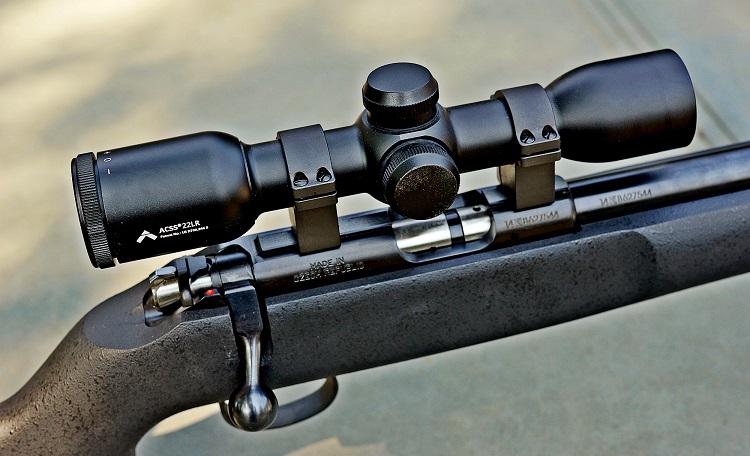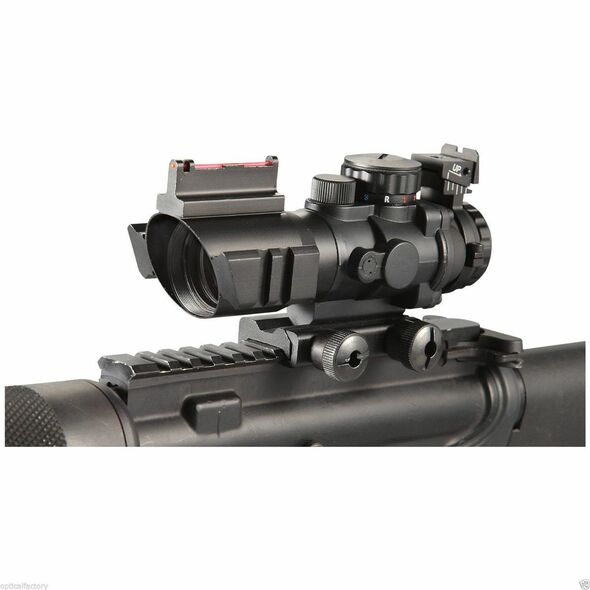Thermal vs Night vision Rifle Scope

Last Updated on July 14, 2022 by Albert Smith
Thermal Imaging Scope VS Night Vision Scope
Choosing a scope is a difficult task for hunters all over the world. There are many things that need to be considered before choosing a scope. The first matter of consideration is what game will be targeted for harvest. Next the hunter must decide locations and conditions the equipment will be routinely used. After making these decisions the decision of choosing thermal rifle scope vs night vision rifle scope must be made. Both night vision rifle scope and thermal rifle scope assist a hunter in detecting, recognizing and identifying his targeted game animal. Night vision devices require minimal light to work. So, they are considered “passive”. On the other hand, Thermal scopes focus infrared light on the targeted area and don’t need light in order to operate. So, they are considered “active” devices. The choice of night vision and thermal rifle scope is weighted by several considerations.
Detecting Game
When detecting game thermal rifle scope detects minute differences in heat. Thermal scopes detect infrared radiation and do not require any visible light to produce an image. Thermal imaging devices can be used equally well day and night. Animals generate heat and are warmer than their surroundings making it possible to detect them at great distances using thermal rifle scope. On the other hand, Night vision relies on at least some ambient light for detection which makes detection at great distances more difficult. If hunting at night, the night vision scope is dependent on moon and stars to provide sufficient light. IR illuminators are used to generate light in the absence of natural light. They work like flashlights for night vision but are not visible to the naked eye. Night vision cannot be used in bright light because it will damage the intensifier tubes that make a night vision scope work.
Recognizing and Identifying Game
Once a hunter detects live animal, he needs to recognize it and identify it as the targeted game. If thermal rifle scopes are being used, images are displayed as black and white or various shades of color. Various colors are used to represent temperature. In thermal imaging the hotter the object the lighter the image. Nowadays newer thermal scopes can invert black and white or utilize a range of colors to differentiate heat intensity. Even though a live object can easily be detected using thermal, it is difficult to recognize it and identify it as the desired game at a great distance. When night vision scopes are being used, visible light energy bounces off the game and a detector receives and turns it into electrical energy, amplifies it and again turns it into an image of the animal. Night vision is only problematic if the game is camouflaged or is standing still. Thermal rifle scope is not inhibited by camo or fog since it functions off radiant heat. The only weakness of thermal scope for rifle is extreme cold. Many night hunters prefer thermal scopes because they can see through crops or fog while hunting. Thermal rifle scope is excellent for detecting game, but it’s unable to identify facial features the way night-vision can. Under ideal conditions the image is more easily recognized and identified as the targeted game to harvest using the night vision capabilities.
Durability of the Scope
Another item for consideration when choosing between night vision scope and thermal scope for rifle is the durability of the equipment. Nowadays, thermal rifle scope has become as sturdy and durable as night vision scope. Both night vision and thermal rifle scope can withstand up to a 30. caliber recoil.
Pricing
Price is also a very important factor to consider before choosing thermal scope or night-vision scope. While thermal is better for detection, it definitely has bigger price tag than night vision. Thermal imaging is relatively newer and more costly technology to manufacture. Night vision has been around for decades and is much more available and affordable.
Dual Day Use
Both thermal rifle scope and night-vision scopes are generally used for during night. Sometime hunters face some situations when they need to identify their target in lighting condition. Most night vision scopes are only compatible with night use as bright light can be destructive to the internal components. Again, there are some high-end night-vision scope that can function in day time as well. Thermal rifle scope has the upper hand as they are more compatible for dual use as they don’t depend on external light in order to operate.
In short it can be said that, thermal rifle is best used to detect the desired game object. Night vision is best used to recognize, identify and harvest the game only if facial recognition is required or for deer depredation. Though a bit pricy thermal rifle scope is the best twenty-four-hour scope option.




